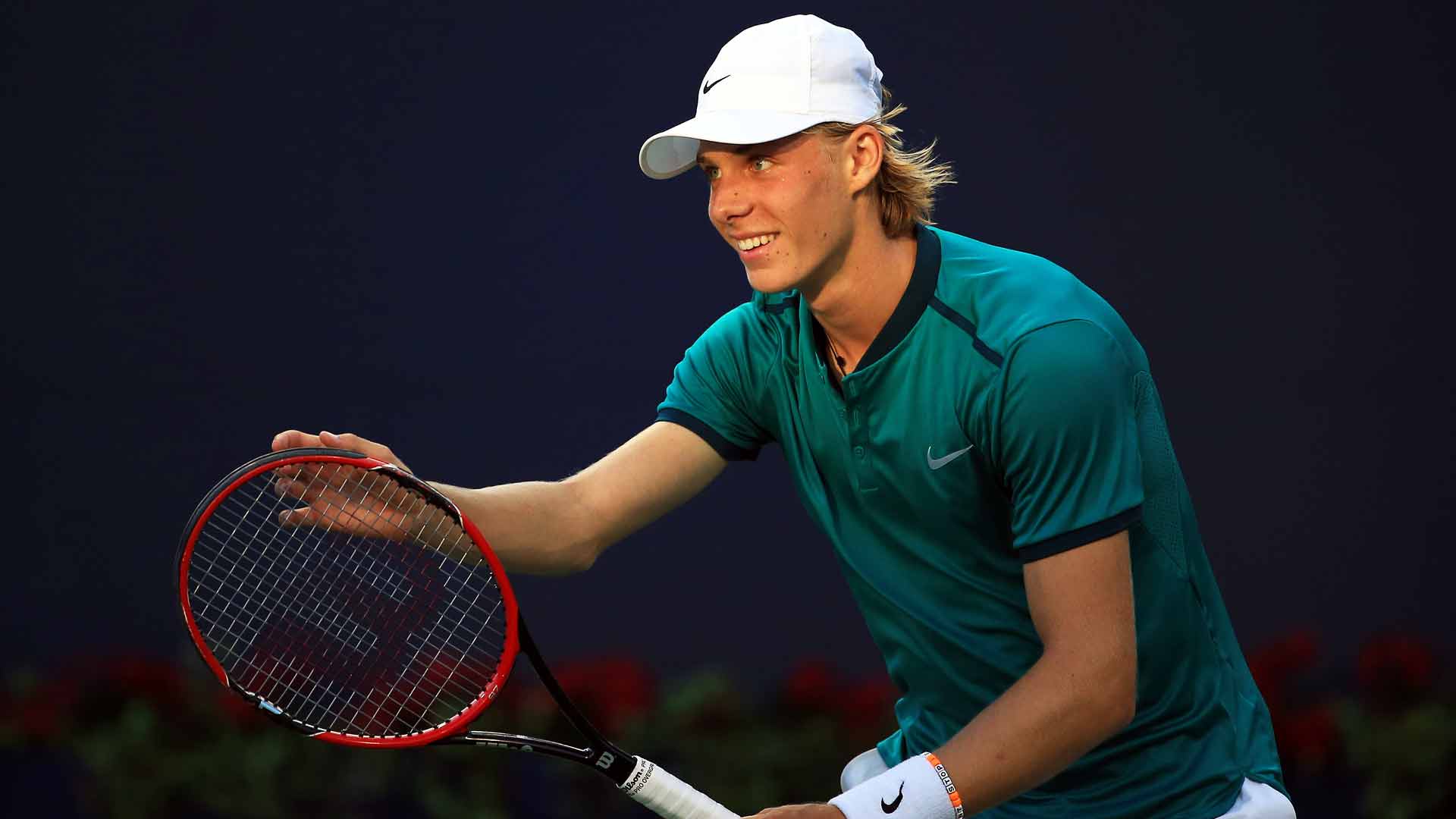Shapovalov's Journey From Swinging & Missing To #NextGenATP Star
Shapovalov’s Journey From Swinging & Missing To #NextGenATP Star
When Denis Shapovalov first picked up a racquet at age five, it was because he wanted to be like his older brother. The #NextGenATP Candian now hopes to provide that same inspiration for kids in his country.
The 20-year-old currently sits at No. 16 in the FedEx ATP Rankings, just three spots away from the career-high standing that he achieved in January. But while Shapovalov takes pride in his on-court accomplishments, he’s equally proud of achieving them on his own terms. His home-grown success has served as a template for other Canadians that they don’t need to relocate in order to pursue their dreams of a professional tennis career.
“I want to use my game to inspire more kids that are going their own way, that aren’t supported, and show that it’s possible to do it on your own if you truly believe and work hard,” Shapovalov said to ATP Uncovered presented by Peugeot. “Hopefully it can inspire the young generation of Canada to pick up racquets and believe that they can become tennis players [while] living and training in Canada.”
Tennis runs in Shapovalov’s family. His mother, Tessa, competed on the Russian national tennis team and played professionally during the 1990s. She went on to become a coach at the Richmond Hill Country Club in Toronto and coached his older brother, Evgeniy. The younger Shapovalov would tag along for training sessions and eventually made his way onto the court.
14 #NextGenATP Players To Watch In 2020
”When he was working with my mom, I would try to run on court [and] disturb, try to hit the balls. For the first bit of time, it was fine because I was swinging and missing,” Shapovalov said. “Soon after, I started to disturb the practice too much and my mom said it was time to start [playing] if I wanted.”
Shapovalov’s love for the sport was immediate and his family was willing to do whatever it took to nurture his talent. When it became difficult for him to get adequate court time at Richmond Hill, Tessa left her job there to open her own tennis academy.
The bold move paid off. Shapovalov won his first ITF Junior title at age 14 and, three years later, lifted the boys’ singles trophy at 2016 Wimbledon. He would pick up his first ATP Tour win just weeks later by ousting Nick Kyrgios in front of friends and family in Toronto.

But Shapovalov acknowledged that his results didn’t come without enormous sacrifices. While his friends would hang out after school, his world was consumed by training. The cost of traveling to elite junior events also put a financial strain on his family.
”Growing up, I wasn’t a normal kid,” he said. “I remember waking up at 5:00 or 6:00am to practise before school, training at 10:00 or 11:00pm, trying to get better, improving something, crying on the court and just putting in everything I had.
”My parents and my team put in so much effort because we came from our own way. We didn’t get any support so we had to put in all the effort, all the money, everything, We were questioning what we should do because we got to a certain point where I was traveling and we couldn’t afford to go to more tournaments. But I always believed in myself and my family believed in me.”
That unwavering belief and willingness to take risks has been evident as he’s made his rapid climb up the rankings. After enduring a string of early exits in the middle of last season, Shapovalov started working with former World No. 8 Mikhail Youzhny in mid-August. He made small tweaks to his game at Youzhny’s urging, such as incorporating backhand slices into his game to get more returns into play, and saw immediate results from it.
Read More: Shapovalov On His Surge: ‘I Knew It Was Just A Question Of Time’
Shapovalov finished the year on a 21-10 run that included his maiden ATP Tour title in Stockholm (d. Krajinovic) and first ATP Masters 1000 final in Paris (l. to Djokovic). He then opened this season with a pair of Top 10 wins against Stefanos Tsitsipas and Alexander Zverev while leading Team Canada at the inaugural ATP Cup.
After enduring plenty of stressful moments around tennis, Shapovalov is now playing without pressure. Being able to swing freely has played a key role in his rapid climb up the rankings and will only yield more strong results in the future.
”When I wake up, my only purpose is to get better and improve something. I’m trying to grow as a player and a person. I want to enjoy where I am in my career,” Shapovalov said. “I don’t have to worry about finances anymore or what I’m going to do if I don’t win this match. Just have fun out there and show the world my game.”

